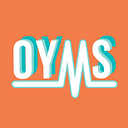York Biomedical Science
Interested in learning about the amazing field of biomedical science at Canada’s third-largest university? Thinking about pursuing research, medicine, dentistry, or any other career involving knowledge of biomedical science? Then York’s Biomedical Science may be the right choice for you!
Biomedical Science is a stream within York’s Biology program under the Faculty of Science. The program gives you lots of flexibility in terms of the courses you take, where you study (there’s a study abroad option), and the work experience you gain throughout your degree.
Prerequisites
This program doesn’t have as many prerequisites as many other healthcare programs! The four required courses are:
- 4U English
- 4U Advanced Functions
- 4U Biology
- 4U Chemistry
It’s worth noting that this program recommends taking 4U Physics as well, though it’s not part of the requirements.
Regarding the minimum average required to be admitted, it’s estimated that this is around the low to mid-80s. Keep in mind that this fluctuates from year to year.
What Courses Will I Take?
During your first year in the program, here are the courses you’ll take:
- Biology
- Chemistry
- Calculus
- Computer Use
- General Education Course
During your second year, your courses begin to become more specialized and you get more choices to pick what best suits your interests:
- Cell Biology and Biochemistry
- Genetics and Organic Chemistry
- Animal Biology or Statistics for Biologists
- Physics or Psychology
- General Education Course
It’s during your final years that you get the most choices to specialize in the specific field you’re interested in. For instance, you can choose to focus on areas such as cancer, neurobiology, pharmaceutical chemistry, and more.
Research & Co-op/Internship Opportunities
In addition to the great courses you can take, there are lots of opportunities to expand your learning both inside and outside of the classroom.
Many of the upper-year courses in the program are taught by leading researchers such as Peter Backx, Canada Research Chair in Cardiovascular Biology, and Chun Peng, York Research Chair in Women’s Reproductive Health. This means you may have the opportunity to perform research with these professors.
As well, there are work opportunities through the co-op/internship program at York. After your third year, you can choose to complete 4, 8, 12, or 16 months of work before returning to school for your final year. In the past, students have worked at companies/organizations like Sanofi Pasteur, Health Gene Corporation, and the City of Toronto.
Study Abroad Opportunity
If studying somewhere other than Canada sounds interesting to you, this is a program you should definitely consider! As part of the Biomedical Science program, you have the option to graduate with a BSc (bachelor of science) or an iBSc (international bachelor of science). If you choose the iBSc degree, you must study abroad for one or two semesters (which is the same as one full academic year). It’s recommended that you study abroad during your third year.
Some of the countries you can go to for your study abroad period are Australia, Brazil, China, Costa Rica, Denmark, France, Germany, the UK, and many others. Keep in mind that some international universities only allow for certain courses/programs and some universities don’t offer courses in English (meaning you must be proficient in the host language).
In addition to studying abroad, iBSc students must take courses that “explore key international issues,” and participate in bilingual (English and French) or trilingual (English, French, and another available language) programs.
Future Career Paths
After completing the Biomedical Science program at York, there are a lot of careers you can pursue! One of these is post-graduate school whether that’s a PhD or Master’s for a research-focused career or medical school to become a physician. As well, you can pursue dentistry, pharmacological studies, veterinary sciences, law, and business. Other options include becoming a cardiovascular technician, epidemiologist, or technical writer.
That’s all for this blog; good luck with your application!
Sources
https://www.yorku.ca/science/wp-content/uploads/sites/31/2022/01/BIOMEDICAL-PROGRAM-OUTLINE.pdf
https://futurestudents.yorku.ca/program/biomedical-science
https://yorkinternational.yorku.ca/go-global/exchange/where-can-i-go/
http://yorkinternational.yorku.ca/go-global/exchange/faqs/
https://www.glendon.yorku.ca/futurestudents/academic-programs/iba/how-it-works/
About the Author
Parmin Sedigh is a 17-year-old stem cell and science communications enthusiast as well as a student researcher, based in Kingston, ON. She’s currently the VP of Communications at Eye Hope Canada. You can usually find her on her computer following her curiosity. Connect with her on LinkedIn.
